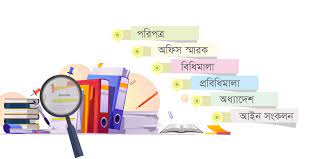Did you know that English conversation can take you on a fun adventure?
Conversing (talking) with others in English opens up a whole new world of opportunities.
Thanks to English, you will be able to talk with people who don’t speak your native language.
This lets you hear ideas and opinions from people who grew up in different cultures. You might even make new lifelong friends!
Talking in English will also be adventurous because you will probably feel a little nervous and excited.
But if you push your English speaking “comfort zone” and just open your mouth, you will feel so accomplished (proud) and motivated to keep learning!
Plus, your English will improve a lot if you have more conversations.
So let’s get started! To help you on this trip, we’ve put
together a friendly guide to English conversation for beginners, filled with
useful, basic phrases—from greetings and small talk to saying goodbye—that will
take you on your first conversation adventure.
English Conversation for Beginners: 45+ Phrases for the English Speaking Adventure of a Lifetime
Starting an English Conversation
Then, any polite conversation starts with a greeting (saying hello). There are many ways to greet someone, and your choice will depend on who you are talking to.
It may be an informal conversation with a friend or an acquaintance (someone you know, but not very well). Or you may use a more formal dialogue when having an English conversation with a colleague, a teacher, a stranger or a government employee.
Informal greetings
Let’s start with informal greetings. Here is how you can say hello:
- Hello!
(A universal greeting that works for every conversation.) - Hi!
(A neutral and friendly greeting.) - Hey!
(An informal and relaxed greeting.) - Greetings!
(This is quite formal and rare these days, but could be used humorously among friends.)
Formal greetings
For a more formal way to greet someone, use the model “good + [time of day]”:
- Good morning!
(Reserved for any time before noon.) - Good afternoon!
(Typically used between noon and 5-6 p.m.) - Good evening!
(Any time after 6 p.m.)
Remember that “good night” normally means that you are saying goodbye. It is also commonly used right before going to bed.
Introductions
What if you have never met the person you are talking to before? Then, after greeting them, it would be polite to introduce yourself and ask for their name. Here’s how:
- My name is _____. What’s your name?
(This is simple, neutral and always works well!)
If you met somebody once before, but you do not remember their name, you can say this:
- I’m sorry, I don’t
remember your name. You are…?
(This is a bit more informal.)
If you want to introduce a person to someone else, you can simply say:
- Please meet + [name]
Please meet my friend Tom!
(Formal introduction) - This is + [name]
This is Tom!
(Common introduction)
Now that you have introduced yourself, use one of the phrases below to respond to someone’s introduction.
- Nice to meet you!
(The most common) - Pleased to meet you!
(Simple and polite) - It’s a pleasure!
(Informal, but nice)
You can hear the first one in this video, where two people meet for the first time and then start a conversation. Better yet, since that video is available on FluentU, you don’t have to worry about missing a word. Just click the interactive subtitles for an instant definition. There are also flashcards, fun quizzes and other learning tools built in.
Check out a free FluentU trial to watch that video—and thousands of other real-world English videos—with all the learning features.

Making Small Talk in English
Great job! You are already having a conversation in English!
After you have exchanged names and greeted each other, you may go on to make some “small talk.”
Small talk is common in many English-speaking countries, especially in the U.S., Canada and England. It is considered polite to add small talk to the beginning of the conversation before talking about the subject of the conversation, whether it is personal or professional.
The most widespread (common) question is “How are you?” In fact, it is so common, that it becomes automatic for people to say, even when they hardly know the person! “How are you” is often even considered part of the greeting (i.e. “Hi, how are you?”). That is how necessary it has become!
There are several ways to ask someone how they are doing:
- How are you? / How are
you doing?
(Neutral) - How’s it going?
(More informal) - How are things?
(Informal) - What’s up?
(Very informal)
An interesting thing about asking these questions is that an answer is not really required. Unless you are very close friends with someone, they are not expecting you to tell them an honest answer about your day—as this funny video shows:
Instead, a simple answer and a “how are you” in return is enough for a typical conversation in English:
- I’m well. How are you?
- It’s going well, thank you. How are you doing?
- Fine, thanks. And yourself?
Note that you might often hear people say “I’m good” when they mean that they are well and doing well. “I’m good” is grammatically incorrect in this context, but it is very common in spoken English, just like a few other mistakes English speakers make, so be careful!
Small talk can also be the primary goal of a conversation, especially when you are talking to people you don’t know and are unlikely to meet again. There are many ways to use small talk successfully, even when you’re still getting comfortable with English conversation for beginners.
Asking and Answering Questions
A conversation is an exchange of ideas, questions and thoughts. The best way to keep a conversation going is to ask questions!
There are two types of questions you may ask: closed-ended and open-ended questions.
Closed-ended questions are also called “yes/no” questions, because their goal is to confirm or deny certain information. For example:
- Are you having a good day?
- Did you just get to the office?
- Have you seen my email?
Compare the examples above to the open-ended questions below. They will ask a person to elaborate—that is, to give more information instead of simply saying “yes” or “no.”
- How is your day going?
(A perfect example of small talk!) - When did you arrive at the office?
- What do you think about that email I sent?
Open-ended questions typically begin with “who,” “what,” “where,” “when” and “why.” They are important to make your English conversation informative and productive. See more examples here.
When the person you are talking to is asking you a question, listen for the keywords and pay attention to the verb being used. This will help you construct your answer using proper grammar.
Don’t worry about using difficult words—it is fine to keep things simple! And if you don’t understand a certain question or word, don’t be afraid to ask.
As a beginner, you may have trouble understanding everything being said in English. This is okay! You are still learning.
Asking for Clarification
You are getting good at conversations in English, but suddenly you realize that you are lost. Maybe the other person is speaking too fast. Maybe she has an unfamiliar accent. Maybe you didn’t hear the last thing she said.
It is perfectly normal to ask for clarification or to repeat something. Just remember to be polite!
If you don’t understand something, let’s say a word or even some idea relating to your conversation, you could say:
- I’m sorry, I don’t understand. Could you please repeat that?
- I’m sorry, I don’t understand. Could you please explain that?
or even…
- Care to elaborate?
(This very informal question is the short version of “Do you care to elaborate on this?”)
If you simply didn’t hear something, just say it like this:
- I’m sorry, I didn’t hear that. Could you please repeat?
- I’m sorry, I didn’t catch that. Could you please repeat?
or even…
- Could you say that again, please?
Don’t be shy to ask for help. People are generally very happy to explain or repeat something! Please don’t forget to thank them after they do.
Bringing an English Conversation to a Close
Say you have got all the information you need from the person. It is time for you to go. Maybe you are running late and want to keep the conversation brief. No matter the reason, it is always nice to let the person know you cannot continue talking to them for much longer.
There are many ways to do it depending on the situation. For example, if you are late, say:
- I have to get going. /
It’s time for me to go.
(This is polite and neutral.) - I have to run—can we
continue later?
(This is more informal, but also polite.)
And if you have all the information you’d wanted:
- Thank you so much for
your help!
(A very common and useful expression) - Got it, thanks!
(Very informal and friendly) - I think I have everything
I need, thank you!
(This is formal and may come across as rude if you don’t thank the person after, so use it with caution.)
Using Small Talk to End a Conversation
Hey, guess what? Small talk can be used at the end of an English conversation too! Before saying goodbye, it is polite to say something like…
- Have a good day!
(This works in any situation.) - Enjoy your day!
(This one is a bit more formal.) - Good luck!
(If the person needs it; it will depend on the situation.) - Talk to you soon!
(This is neutral and does not necessarily mean that you will really talk to the person soon.) - Great seeing you / Great
talking to you!
(This is informal yet common.) - Catch you later!
(This is very informal and fun.)
And after that, the only thing left to do is…
Saying Goodbye in English
This one is easy. You really cannot go wrong with just a simple “goodbye” or “bye” in spoken English. You can also use any small talk expression to complement your goodbye. For example:
- Bye! Have a good day!
- Catch you later! Bye-bye!
And, as mentioned at the very beginning of this guide…
- Good night!
Simple, right?
You are now an English conversation master!
- Cigarette Smoke
|
A: Do you smell that? B: Oh, yes. A: I can’t stand cigarette smoke. B: It smells so bad. A: One cigarette stinks up the whole sidewalk. B: Smokers think they are so cool. A: They are so weak. B: A little cigarette controls them. A: They look so stupid taking a puff. B: And then they blow smoke out of their mouth. A: They think it’s cool. B: Cigarettes stink. |
2.Quitting Smoking
|
A: I
can’t quit smoking. B: Of course you can. A: I don’t have enough will power. B: Of course you do. A: I wish I had never started. B: So does every smoker. A: I’ve tried to quit so many times. B: So has everyone else. A: Nothing seems to work. B: All it takes is will power, and you have it. A: Then why can’t I quit? B: You have to believe in yourself. |
3.Too Much Stress
|
A: What
did the doctor say? B: He thinks I have too much stress. A: Stress causes your stomachaches? B: Stress causes different problems with different people. A: So what did he tell you to do? B: He said I need to think positive. A: He didn’t give you any medication? B: I hate medication. It makes me feel different. A: So how do you think positive? B: I think about nice things. A: Like what? B: Like a day at the beach, with my toes in the sand. |
4.Don’t Be in a Hurry
|
A: You’re
driving too fast. B: I’m in a hurry. A: Don’t ever be in a hurry. B: It’s not my fault. You didn’t wake me up. A: That’s not my fault. You didn’t tell me to wake you up. B: Well, I meant to. A: Don’t ever be in a hurry when you’re driving. B: Why not? A: Because you’ll have an accident. Most accidents are because people are in a hurry. B: How do you know that? A: I read a lot. B: I thought drunks caused most accidents. |
5. A Bad Driver?
|
A: Good afternoon, officer. B: Your driver’s license and registration, please. A: Here you go. B: Do you know why I pulled you over? A: I have no idea. All of a sudden I heard your siren. B: You rolled through that stop sign back there. A: But I stopped! B: No, you didn’t. You slowed down, but you didn’t come to a full stop. A: Well, nobody else does, so why should I? B: That’s not the attitude of a good driver. A: But I am a good driver. I’ve never had a ticket in my life. B: Well, you’ve got one now. Here. Have a nice day. |
6. The Crosswalk
|
A: Life isn’t fair. B: It sure isn’t. A: I got a ticket yesterday. B: What for? A: I was crossing the street. B: Were you in a crosswalk? A: Yes, but the red hand was blinking. B: So? That’s a ticket? A: Yes, it’s a $140 ticket. B: That’s not right! A: When I started to cross the street, the white walk sign was blinking. B: You need to walk faster. |
7. I Need a Job
|
A: I
need a job. B: I thought you had a job. A: I did. B: What happened? A: I got laid off. B: That’s terrible! When did it happen? A: I got laid off last week. B: Just you? A: No, ten of my coworkers got laid off, too. B: What are you going to do? A: I’m looking in the newspaper for a job. B: Good luck! |
. Before Going to an Interview
|
A: Before
you go to that interview, check yourself. B: What’s to check? A: Are your nails clean? B: Yes, they are. A: Did you double-check your nose and teeth? B: They are clean, too. A: Did you shine your shoes? B: My shoes are shined. A: Do your socks match? B: Of course they match. A: No, they don’t. One is black and one is dark blue. B: Yikes! Thank you. |
8. Become a Teacher
|
A: Do your students ever talk
about their jobs? B: Yes, and they ask me what jobs are the best. A: I tell my students to become a teacher. B: Teaching is a great job. A: It’s the best job I’ve ever had. B: What makes it so good? A: For me, it’s the students. B: What do you mean? A: I mean I have wonderful students. B: That must be nice. A: Teaching is the best part of my whole day. B: You’re a lucky man to have a job you love. |
9. I Like That Shirt
|
A: I
like that shirt. B: So do I. A: How much is it? B: I don’t know. The tag is missing. A: Ask the clerk. B: I will. A: Oh, look. Here’s another shirt just like it. B: Does it have a price tag? A: Yes, it does. It’s only $20. B: That’s a great price. A: I think I’ll buy both of them. B: You’d better try them on first. |

10. To Save Money
|
A: I’m trying to stretch my
dollars. B: How are you doing that? A: I started shopping at the dollar store. B: That saves a lot of money. A: I bought three pounds of potatoes for a dollar. B: That’s a good deal. A: Yes, even though some of the potatoes had eyes. B: Just put them in the fridge. A: Also, I bought a can of cheap coffee and a bag of good coffee. B: Why did you do that? A: I mixed them together. B: If the coffee still tastes okay, that’s a good idea. |
11. A New Diet
|
A: I’m
on a new diet. B: What are you eating now? A: I switched from pasta to potatoes. B: Why did you do that? A: Pasta is processed food. Potatoes are natural food. B: Natural food has more vitamins. A: And it’s just as easy to prepare. B: How do you prepare the potatoes? A: I wash them, and then steam them for 15 minutes. B: That’s pretty simple. A: Then I add butter, salt, and pepper. B: Can I have all those cans of tomato sauce you bought for your pasta? |
12. A Good Salad
|
A: I
love salads. B: Me too. A: I usually eat a simple salad. B: What do you put in it? A: Just lettuce, tomato, and celery. B: That’s it? A: I add some pepper and salt. B: I always put cheese in my salads. A: Yes, cheese is nice. B: What kind of dressing do you use? A: I pour lots of French dressing on top. B: Me too. French dressing is so delicious! Who cares about calories? |
13. The Airport
|
A: What
time does your plane leave? B: It leaves at 12:15. A: When do you have to be at the airport? B: I have to be there two hours early. A: So we have to be at the airport at 10:15. B: That means we have to leave the house at 9:15. A: Well, it’s an hour to get there, if there are no traffic problems. B: So maybe we better leave at 8:15? A: Yes, it’s better to get there too early than too late. B: I agree. A: You never know what might happen on these freeways. B: There’s at least one huge accident every day. |
14. Fear of Flying
|
A: I
hate flying. B: So do I. A: A long time ago, flying used to be okay. B: Now it’s like riding a bus. A: You’re jammed in with people all around you. B: Half of them are coughing, and the other half are sneezing. A: You don’t have any elbow room or knee room. B: People are always getting up to use the bathroom. A: Kids are crying or climbing over you. B: It’s a flying zoo! A: I wish I could afford first class seats. B: Doesn’t everybody? |
14. Serving Your Country
|
A: That
was a great trip to Washington, D.C. B: Tell me about it, Dad. A: About 90 of us World War II veterans got on the plane at 8 a.m. B: How long was the flight? A: It only took about two hours. B: Did you take pictures at the World War II Monument? A: Oh, yes. We all took lots of pictures. B: Then you flew back home that evening? A: Yes. When we landed, TV reporters and the Army band were there. B: That must have made you feel really special. A: Oh, it did. There were about 300 people there to honor us. B: Well, you all deserve it. You helped save |


















Discussion about this post